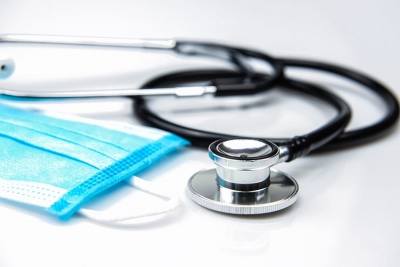By Avinash PrabhakarNew Delhi, Jan 8 : After the Covid pandemic hit the world three years ago, the healthcare sector has become one of the key areas for the budget allocations as industry looks towards the Centre’s intervention to make healthcare affordable and accessible to all.
The PHD Chamber of Commerce and Industry eyes on increasing the allocation for the growing need for health facilities and infrastructure across the country.
Saket Dalmia, President, PHDCCI, said: “PHDCCI recommends that due to the growing need for health facilities and infrastructure across the country in different regions, it is important to increase the health budget substantially.We suggest that the Health Budget should be increased by 30-40 per cent in the forthcoming budget to sustain the growth plan for the sector.”
Dalmia said that under the increased budget, the major focus could be on a widespread campaign for healthy living which is the need of the hour to build up a healthy human resource for the country.
The importance of healthy living should necessarily be included in the school curriculum.Awareness programmes on diabetes and other lifestyle diseases should be organised by the local bodies, chambers and associations.
“To encourage the Health Tech and Wellness Industry, GST rate on services and products which offer health benefits to people and belong to the Health Tech, Wellness and AYUSH Industry should be lowered to the 5 per cent slab instead of the prevailing 12 per cent and 18 per cent in most cases,” he said.
Along with special focus on the production of APIs and medical devices to encourage Aatmanirbhar Bharat, the government must establish primary clinics at the Panchayat level and ensure their proper and regular functioning.
They should be digitally equipped for facilitating tele-medicine, the PHDCCI President added.
While, underlining the healthcare burden due to tobacco in India that is around 1.04 per cent of the GDP, Prof Arvind Mohan, Professor and Head, Department of Economics, University of Lucknow, said that the substantial hike in tax on all tobacco items and stronger laws will not only bring the best out of the human capital by ensuring better health of the citizens.
Prof Mohan explained: “Presently, health is a big challenge for human development as at least 70 per cent of the health expenditure is being met by the public themselves while just 25-30 per cent by the government and global institutions.
“But if we manage to cut down this expenditure by imposing tax on tobacco products, we will be not only able to capitalise our human resources but also boost GDP multi-fold.This will help achieve our dream of a $5 trillion economy too,” Prof Mohan said.
Dr Pritam Datta, a fellow at Delhi-based National Institute of Public Finance and Policy (NIPFP), underlined that while the major argument for introducing GST in 2017 was that it would contribute 2 per cent of the GDP growth but, in actuality, this has not happened.
“These taxes also have the added advantage of ensuring better health outcomes, significantly reducing mortality and morbidity.And these health benefits would skew disproportionately to low-income consumers,” said Datta.
avr/pgh
#budget #sustain #Delhi #Avinash #Mohan #Jan #Delhi #New Delhi #Lucknow #Arvind #Covid
.






